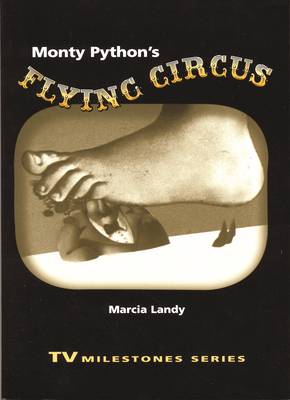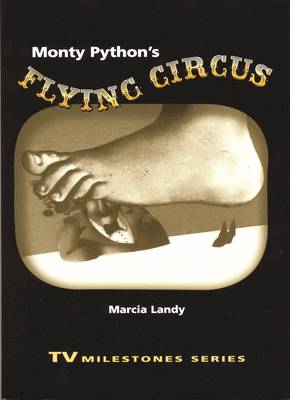
- Afhalen na 1 uur in een winkel met voorraad
- Gratis thuislevering in België vanaf € 30
- Ruim aanbod met 7 miljoen producten
- Afhalen na 1 uur in een winkel met voorraad
- Gratis thuislevering in België vanaf € 30
- Ruim aanbod met 7 miljoen producten
Omschrijving
A comprehensive study examining the history, content, and context of the legendary comedy series Monty Python's Flying Circus.
One of the most innovative comedic programs to air on television, Monty Python's Flying Circus was a mix of the carnivalesque and the critical. The show has become famous for eschewing many of the conventions of situation comedy, the fully formed and coherent script, narrative closure, predictable characters, and the decorum associated with presentation. Its curious transatlantic popularity defied the assumption that comedy is regional and exclusive, and the show's cult status still lives on in the United States and United Kingdom through reruns, videos, DVDs, and continual reappearances by the show's now iconic stars. Most written accounts of Monty Python's Flying Circus focus solely on members of the Pythons, histories of the sketches, or the development of other Monty Python projects, leaving a dearth of scholarly and contextual analysis on the television show itself.
Marcia Landy's book is one of the rare studies available examining the Flying Circus within the context of its time, analyzing the show's influence on 1960s and 1970s British television as well as British cultural influence on the show's legendary material. Landy explores not only why the series' complex form of comedy was important but also why it was so well received, citing the Pythons' amalgam of comedic material: the unruly treatment of sexuality, the mockery of religion and class, and the critique of the medium of television. The Flying Circus parodied both the lowbrow and the highbrow, throwing many previously untouchable topics into the ring, and here Landy deconstructs the impact of the show's risks and reception. As informative as it is engaging and entertaining, this book will appeal to film and media scholars, popular culture enthusiasts, and Monty Python fans alike.
Specificaties
Betrokkenen
- Auteur(s):
- Uitgeverij:
Inhoud
- Aantal bladzijden:
- 128
- Taal:
- Engels
- Reeks:
Eigenschappen
- Productcode (EAN):
- 9780814331033
- Verschijningsdatum:
- 29/03/2005
- Uitvoering:
- Paperback
- Formaat:
- Trade paperback (VS)
- Afmetingen:
- 128 mm x 185 mm
- Gewicht:
- 136 g

Alleen bij Standaard Boekhandel
Beoordelingen
We publiceren alleen reviews die voldoen aan de voorwaarden voor reviews. Bekijk onze voorwaarden voor reviews.











